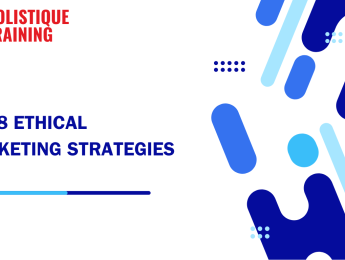Introduction
In the dynamic world of business, success is not solely determined by strategies or market conditions but also by the fundamental beliefs and principles that guide organizations. This comprehensive guide delves into the essence of business philosophy, its key components, and how it drives success in the modern business landscape.
What is Business Philosophy?
Business philosophy is the fundamental set of beliefs, values, and principles that guide an organization's approach to conducting business and achieving its goals. It serves as the cornerstone of organizational identity, shaping the company's mission, vision, and strategic direction. A strong business philosophy not only defines the purpose and values of the organization but also influences decision-making, organizational culture, and stakeholder relationships.
Key Components of Business Philosophy:
- Mission and Vision: A business philosophy articulates the overarching purpose (mission) and desired future state (vision) of the organization. It clarifies why the organization exists and what it aspires to achieve.
- Core Values: Business philosophies are underpinned by core values that reflect ethical standards, integrity, and priorities. These values guide behaviors and decisions at all levels of the organization.
- Strategic Orientation: A business philosophy shapes the strategic orientation of the organization, including its market positioning, competitive strategy, and approach to innovation.
- Stakeholder Focus: Business philosophies emphasize the importance of stakeholders, including customers, employees, investors, suppliers, and communities. They outline how the organization aims to create value and cultivate relationships with these stakeholders.
Importance of Business Philosophy:
- Guidance and Direction: A clear business philosophy provides guidance and direction for strategic decision-making and goal setting within the organization.
- Organizational Identity: Business philosophy defines the unique identity and character of the organization, distinguishing it from competitors and attracting like-minded stakeholders.
- Decision-Making Framework: Business philosophies serve as a framework for ethical decision-making, ensuring alignment with core values and long-term objectives.
- Culture and Behavior: Business philosophies shape organizational culture by influencing employee behaviors, attitudes, and interactions.
- Stakeholder Engagement: A well-defined business philosophy fosters trust and credibility among stakeholders, enhancing relationships and fostering collaboration.
Business philosophy encapsulates the fundamental beliefs and principles that drive organizational success, providing a roadmap for strategic alignment, ethical conduct, and sustainable growth. It is an essential foundation upon which businesses build their identity, culture, and strategic initiatives.
How Can Business Philosophies Drive Success?
Business philosophies play a crucial role in driving success within organizations by providing a strategic framework that aligns behaviors, decisions, and goals with core values and objectives. Here's a detailed exploration of how business philosophies contribute to achieving success:
- Strategic Alignment: Business philosophies ensure that all activities and decisions within an organization are aligned with its overarching mission, vision, and values. This alignment fosters clarity and focus, enabling teams to work towards common goals efficiently.
- Guiding Decision-Making: A well-defined business philosophy serves as a compass for decision-making at all levels of the organization. It provides a set of principles that help leaders and employees make ethical, strategic, and customer-centric choices.
- Cultivating Organizational Culture: Business philosophies shape organizational culture by influencing the behaviors, attitudes, and norms within the company. When employees share and embody the organization's values, it creates a positive and cohesive work environment conducive to productivity and innovation.
- Driving Innovation: Certain business philosophies, such as a commitment to continuous improvement or a focus on customer needs, foster innovation within the organization. By encouraging creativity and experimentation, these philosophies drive product/service enhancements and facilitate adaptation to market changes.
- Enhancing Customer Satisfaction: Customer-centric business philosophies prioritize understanding and fulfilling customer needs and expectations. By placing customers at the center of decision-making processes, organizations can improve customer satisfaction, retention, and loyalty.
- Building Stakeholder Trust: Ethical business philosophies build trust and credibility among stakeholders, including customers, employees, investors, and partners. Transparent and responsible business practices enhance reputation and foster long-term relationships.
- Adapting to Change: Business philosophies that emphasize flexibility and adaptation enable organizations to respond effectively to industry trends, technological advancements, and economic shifts. This agility is critical for maintaining relevance and competitiveness in dynamic markets.
- Promoting Employee Engagement: When employees resonate with the organization's philosophy and values, they are more likely to feel engaged, motivated, and committed to their work. A strong sense of purpose fosters employee satisfaction and reduces turnover rates.
- Sustaining Long-Term Success: Business philosophies contribute to sustainable growth and success by promoting responsible practices, ethical conduct, and stakeholder value creation. They guide strategic planning initiatives that prioritize long-term viability and impact.
Business philosophies drive success by providing a cohesive framework that aligns organizational efforts, fosters innovation and adaptability, enhances stakeholder relationships, and nurtures a positive organizational culture. When implemented effectively, these philosophies create a strong foundation for achieving business objectives and sustaining competitive advantage.
Which Philosophies Shape Modern Business Practices?
Modern business practices are influenced by a variety of philosophies that reflect evolving market dynamics, changing consumer expectations, and technological advancements. These philosophies emphasize specific principles and methodologies aimed at achieving organizational objectives effectively. Here are some key philosophies that shape modern business practices:
Lean Management:
Principles: Lean management focuses on maximizing customer value while minimizing waste in processes. It underlines continuous improvement, efficiency, and eliminating non-value-added activities.
Application: Modern businesses adopt lean principles to streamline operations, reduce costs, and enhance customer satisfaction by delivering products and services with higher quality and speed.
Agile Methodology:
Principles: Agile methodology emphasizes flexibility, collaboration, and iterative development. It prioritizes responding to change over following a rigid plan and promotes adaptive planning, rapid delivery, and continuous improvement.
Application: Agile practices are widely used in software development and project management but have expanded to other industries. They enable organizations to quickly adapt to market shifts, customer feedback, and emerging opportunities.
Design Thinking:
Principles: Design thinking is a human-centered approach to innovation that prioritizes empathy, creativity, and iterative problem-solving. It involves understanding user needs, ideation, prototyping, and testing solutions.
Application: Modern businesses leverage design thinking to develop products, services, and experiences that resonate with customers. It fosters innovation by challenging assumptions and focusing on user insights.
Corporate Social Responsibility (CSR):
Principles: CSR integrates social, environmental, and ethical considerations into business strategies. It involves responsible business practices, philanthropy, sustainability initiatives, and community engagement.
Application: CSR is increasingly important in modern business practices, reflecting consumer demand for ethical and sustainable businesses. Companies integrate CSR into their core strategies to build trust, enhance reputation, and create positive social impact.
Digital Transformation:
Principles: Digital transformation involves leveraging technology to reimagine business processes, customer experiences, and value propositions. It encompasses digitization, automation, data analytics, and innovation-driven strategies.
Application: Modern businesses embrace digital transformation to stay competitive in the digital age. They adopt cloud computing, AI, IoT, and other technologies to optimize operations, personalize customer interactions, and unlock new revenue streams.
Innovation and Disruption:
Principles: Innovation-driven philosophies encourage experimentation, risk-taking, and disruptive thinking. They prioritize continuous learning, adaptability, and embracing change as opportunities for growth.
Application: Modern businesses must innovate to stay ahead of competitors and meet evolving customer expectations. They invest in R&D, collaborate with startups, and foster a culture of creativity to drive sustainable growth and market leadership.
These philosophies reflect the need for agility, customer-centricity, sustainability, and innovation in modern business practices. By adopting and integrating these principles, organizations can adapt to market disruptions, deliver value to stakeholders, and achieve long-term success in a rapidly changing business landscape.
How Does Innovation Influence Business Philosophies?
Innovation plays a transformative role in shaping and evolving business philosophies, influencing the way organizations operate, strategize, and interact with stakeholders. Here's a detailed exploration of how innovation influences business philosophies:
Catalyst for Change:
Innovation Principle: Innovation challenges the status quo and encourages organizations to embrace change as a constant. It promotes a mindset of continuous improvement and adaptation.
Influence on Business Philosophy: Innovation-driven organizations often adopt business philosophies that prioritize flexibility, agility, and proactive response to market dynamics. They view change as an opportunity for growth rather than a threat, shaping a culture that embraces experimentation and learning.
Customer-Centricity:
Innovation Principle: Innovation is fueled by a deep understanding of customer needs, preferences, and pain points. It involves developing solutions that address unmet customer demands and deliver exceptional value.
Influence on Business Philosophy: Organizations committed to innovation often adopt customer-centric business philosophies. They prioritize empathy, user experience, and continuous feedback loops to drive product/service enhancements that resonate with customers.
Culture of Creativity:
Innovation Principle: Innovation thrives in environments that nurture creativity, collaboration, and risk-taking. It requires fostering a culture that encourages employees to generate and explore new ideas.
Influence on Business Philosophy: Innovation influences business philosophies by promoting a culture of creativity and experimentation. Organizations value diversity of thought, encourage interdisciplinary collaboration, and allocate resources to support innovation initiatives as part of their strategic philosophy.
Adaptability and Resilience:
Innovation Principle: Innovation requires adaptability and resilience to respond effectively to market disruptions, technological advancements, and competitive pressures.
Influence on Business Philosophy: Innovation-driven organizations integrate adaptability and resilience into their business philosophies. They prioritize flexibility in strategy execution, build scalable processes, and invest in technologies that enable rapid adaptation to changing business landscapes.
Embrace of Emerging Technologies:
Innovation Principle: Innovation involves leveraging emerging technologies such as AI, IoT, blockchain, and augmented reality to drive efficiency, create new business models, and enhance customer experiences.
Influence on Business Philosophy: Organizations that embrace innovation-driven philosophies incorporate technology as a core enabler of business strategies. They invest in digital transformation initiatives, prioritize data-driven decision-making, and foster a culture of experimentation with emerging technologies.
Competitive Advantage and Market Leadership:
Innovation Principle: Innovation is a key driver of competitive advantage and market leadership, enabling organizations to differentiate themselves and capture new opportunities.
Influence on Business Philosophy: Innovation influences business philosophies by instilling a mindset of proactive disruption and market leadership. Organizations prioritize innovation as a strategic imperative, continuously seeking new ways to create value and outperform competitors.
Innovation influences business philosophies by fostering a culture of change, customer-centricity, creativity, adaptability, and technological adoption. Organizations that prioritize innovation-driven philosophies are better positioned to navigate complexity, seize opportunities, and sustain long-term success in dynamic and competitive markets.
Table 1: The Impact of Innovation on Business Philosophies
Innovation Principle | Influence on Business Philosophy |
Catalyst for Change | - Challenges the status quo and embraces change as a constant<br>- Promotes a mindset of continuous improvement and adaptation<br>- Shapes a culture that embraces experimentation and learning |
Customer-Centricity | - Fueled by deep understanding of customer needs, preferences, and pain points<br>- Drives solutions that address unmet demands and deliver exceptional value<br>- Prioritizes empathy, user experience, and continuous feedback loops to enhance products/services |
Culture of Creativity | - Thrives in environments that nurture creativity, collaboration, and risk-taking<br>- Fosters a culture that encourages generation and exploration of new ideas<br>- Values diversity of thought and interdisciplinary collaboration to support innovation initiatives |
Adaptability and Resilience | - Requires adaptability and resilience to respond effectively to market disruptions and technological advancements<br>- Integrates flexibility into strategy execution and builds scalable processes<br>- Invests in technologies enabling rapid adaptation to changing landscapes |
Embrace of Emerging Technologies | - Leverages AI, IoT, blockchain, and augmented reality to drive efficiency and enhance customer experiences<br>- Incorporates technology as a core enabler of business strategies<br>- Fosters a culture of experimentation with emerging technologies |
Competitive Advantage and Market Leadership | - Drives competitive advantage and market leadership through proactive disruption<br>- Prioritizes innovation as a strategic imperative to create value and outperform competitors<br>- Continuously seeks new opportunities and approaches to sustain success |
How Does Sustainability Fit into Business Philosophies?
Sustainability plays a critical role in shaping modern business philosophies, driving organizations to integrate environmental, social, and ethical considerations into their strategic frameworks. Here's a detailed exploration of how sustainability fits into business philosophies:
Core Values and Ethics:
Sustainability Principle: Sustainability emphasizes responsible stewardship of resources, ethical practices, and accountability for environmental and social impacts.
Integration into Business Philosophy: Sustainability aligns with core values and ethical principles within business philosophies. Organizations prioritize sustainability as a guiding principle, shaping decision-making processes and behaviors to minimize negative impacts and contribute positively to society.
Long-Term Perspective:
Sustainability Principle: Sustainability emphasizes a forward-thinking perspective that prioritizes meeting current needs while safeguarding the capacity of future generations to fulfill their own needs.
Integration into Business Philosophy: Sustainability encourages organizations to adopt business philosophies that prioritize long-term value creation over short-term gains. It drives strategic planning, investment decisions, and risk management strategies that consider environmental and social impacts over time.
Stakeholder Engagement:
Sustainability Principle: Sustainability recognizes the interconnectedness of stakeholders, including employees, customers, communities, investors, and regulators.
Integration into Business Philosophy: Business philosophies that embrace sustainability emphasize stakeholder engagement and collaboration. Organizations prioritize transparency, dialogue, and partnership with stakeholders to address sustainability challenges and foster mutual trust.
Risk Mitigation and Resilience:
Sustainability Principle: Sustainability mitigates risks associated with climate change, resource scarcity, regulatory changes, and reputational damage.
Integration into Business Philosophy: Sustainability-driven philosophies integrate risk management strategies that anticipate and address environmental, social, and governance (ESG) risks. Organizations implement proactive measures to enhance resilience and adaptability in the face of sustainability-related challenges.
Innovation and Efficiency:
Sustainability Principle: Sustainability drives innovation, encouraging organizations to develop eco-friendly products, technologies, and processes that minimize environmental impact.
Integration into Business Philosophy: Sustainability fosters a culture of innovation and efficiency within business philosophies. Organizations prioritize resource efficiency, waste reduction, and circular economy principles to drive operational excellence and competitive advantage.
Brand Reputation and Market Differentiation:
Sustainability Principle: Sustainability enhances brand reputation and market differentiation, appealing to environmentally and socially conscious consumers.
Integration into Business Philosophy: Sustainability-oriented business philosophies leverage sustainability as a key differentiator in the marketplace. Organizations communicate their sustainability commitments and achievements to build trust, attract customers, and strengthen brand loyalty.
Sustainability is integrated into business philosophies as a fundamental principle that drives ethical behavior, long-term value creation, stakeholder engagement, risk management, innovation, and market competitiveness. By embracing sustainability, organizations can align their business strategies with broader societal and environmental goals, contributing to a more sustainable future.
How Can Business Philosophies Adapt to Global Markets?
Business philosophies must evolve and adapt to effectively navigate global markets characterized by diverse cultures, economic conditions, regulatory landscapes, and consumer preferences. Here's an in-depth exploration of how business philosophies can adapt to global markets:
Cultural Sensitivity and Diversity:
Adaptation Principle: Global markets encompass diverse cultures, languages, and societal norms. Business philosophies should prioritize cultural sensitivity and inclusivity.
Integration into Business Philosophy: Organizations adapt by incorporating cultural awareness and diversity into their philosophies. They promote inclusive practices, multicultural team collaboration, and localized approaches to resonate with diverse audiences.
Flexibility and Localization:
Adaptation Principle: Global markets demand flexibility to tailor products, services, and marketing strategies to local preferences and regulations.
Integration into Business Philosophy: Business philosophies advocate for flexibility and localization. Organizations embrace agile methodologies, adaptive strategies, and decentralized decision-making to respond quickly to market variations and regulatory requirements.
Ethical Standards and Corporate Social Responsibility (CSR):
Adaptation Principle: Ethical standards and CSR expectations vary across global markets. Organizations must align business philosophies with local ethical norms and societal expectations.
Integration into Business Philosophy: Business philosophies integrate ethical principles and CSR commitments tailored to specific markets. Organizations engage in community outreach, environmental stewardship, and responsible sourcing practices to build trust and credibility.
Global Collaboration and Partnerships:
Adaptation Principle: Global markets necessitate collaboration and partnerships with local stakeholders, suppliers, and distributors.
Integration into Business Philosophy: Business philosophies emphasize collaboration and partnerships. Organizations establish global networks, strategic alliances, and joint ventures to leverage local expertise, expand market reach, and drive mutual growth.
Technology and Innovation Adoption:
Adaptation Principle: Technology and innovation play a pivotal role in global competitiveness. Business philosophies should embrace digital transformation and technological advancements.
Integration into Business Philosophy: Organizations integrate technology and innovation into their philosophies to enhance operational efficiency, customer experiences, and market scalability. They invest in digital infrastructure, data analytics, and emerging technologies to gain a competitive edge.
Adaptive Leadership and Cross-Cultural Communication:
Adaptation Principle: Effective leadership and communication are essential for navigating global markets.
Integration into Business Philosophy: Business philosophies promote adaptive leadership styles that value cross-cultural communication, empathy, and interpersonal skills. Organizations empower global leaders, invest in cross-cultural training, and prioritize open dialogue to bridge cultural gaps and foster collaboration.
Agility and Risk Management:
Adaptation Principle: Global markets are characterized by geopolitical uncertainties, trade dynamics, and economic fluctuations.
Integration into Business Philosophy: Business philosophies advocate for agility and robust risk management. Organizations implement scenario planning, diversify supply chains, and leverage financial instruments to mitigate global market risks and capitalize on emerging opportunities.
Business philosophies adapt to global markets by embracing cultural sensitivity, flexibility, ethical standards, collaboration, technology adoption, adaptive leadership, and risk management. By integrating these principles into their philosophies, organizations can thrive in diverse global landscapes, build resilient operations, and achieve sustainable growth across borders.
Table 2: Adapting Business Philosophies to Global Markets
Adaptation Principle | Integration into Business Philosophy |
Cultural Sensitivity and Diversity | - Prioritize cultural sensitivity and inclusivity- Incorporate cultural awareness and diversity into philosophies- Promote inclusive practices and multicultural team collaboration |
Flexibility and Localization | - Advocate for flexibility and localization- Embrace agile methodologies and adaptive strategies- Implement decentralized decision-making to respond quickly to market variations and regulations |
Ethical Standards and Corporate Social Responsibility (CSR) | - Align philosophies with local ethical norms and societal expectations- Integrate ethical principles and CSR commitments- Engage in community outreach, environmental stewardship, and responsible sourcing practices |
Global Collaboration and Partnerships | - Emphasize collaboration and partnerships- Establish global networks and strategic alliances- Leverage local expertise to expand market reach and drive mutual growth |
Technology and Innovation Adoption | - Embrace digital transformation and technological advancements- Integrate technology and innovation into philosophies- Invest in digital infrastructure, data analytics, and emerging technologies |
Adaptive Leadership and Cross-Cultural Communication | - Promote adaptive leadership styles- Value cross-cultural communication and empathy- Empower global leaders and invest in cross-cultural training |
Agility and Risk Management | - Advocate for agility and robust risk management- Implement scenario planning and diversify supply chains - Leverage financial instruments to mitigate global market risks and capitalize on opportunities |
Conclusion
In conclusion, business philosophy serves as the foundational framework that drives organizational success and sustainability. By integrating core values, strategic orientation, and stakeholder engagement into their philosophies, businesses can navigate complex global markets with cultural sensitivity, adaptability, and ethical responsibility. Moreover, embracing innovation and technological advancements enhances competitiveness and market relevance.
Business philosophies evolve in response to changing market dynamics, consumer expectations, and societal trends. They provide organizations with a roadmap for strategic alignment, ethical conduct, and continuous improvement. Ultimately, a well-defined business philosophy not only defines the identity and character of an organization but also fosters a culture of innovation, collaboration, and resilience necessary for long-term success in today's dynamic business environment.
























